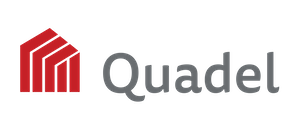Housing Quality Standards (HQS) Inspections are part of Housing Choice Voucher (HCV) program regulations (24 CFR Part 982) and require units within the program to meet a certain standard. Current HQS regulations consist of 13 key aspects of housing quality, performance requirements, and acceptability criteria.
Quadel Director, Jim Evans, discusses how to ensure HQS inspections are done efficiently and compliantly.

Quadel Director, Jim Evans, helps PHAs reach operational and performance goals.
Better Inspections, Better SEMAP Scores
The Section 8 Management Assessment Program (SEMAP) scores are the primary way HUD assesses the management of an HCV program. There are 14 indicators in SEMAP and one bonus indicator. HQS Inspections are indicators 5, 6, 11, and 12 of SEMAP and account for roughly one-third of all possible points. The importance of proper HQS inspections is critical, according to Evans.
“If you lose all of the points in HQS, it’s impossible to be a High Performer. HQS is an important program responsibility because it is directly related to the health and safety of the families we are assisting,” Evans said. “PHAs will often bring in Quadel to help them train staff and provide technical assistance related to the HQS inspection process and enforcement. We want to make sure all program obligations are being met so the agency can achieve its maximum SEMAP potential.”
Plan out Inspection Routes
One of the biggest challenges PHAs face regarding HQS inspections is simply having the time to conduct each inspection on time. PHAs with staff shortages can struggle to ensure each inspection – initial, follow-up or annual – is conducted when required. Evans said the key to timely inspections is preparation and route planning.
“Scheduling is the key to inspection efficiently. You want to route your daily inspections in a way that doesn’t have you spending a lot of time driving site to site. It’s about being smart with your time,” Evans said. “You can reach the highest efficiency by scheduling inspections from the furthest out to the closest into where you are going to end your day. Or, vice versa. You want to take time to plan out your inspections so you aren’t wasting time while completing them. We often advise our clients how to use technology tools to achieve efficient scheduling.”
Utilize New Guidelines and Technology
The COVID-19 pandemic has been the newest, and arguably, the hardest challenge PHAs have overcome in the past year. HQS inspections and enforcement became a real challenge when inspectors were unable to enter units to complete inspections. To help alleviate this issue and ensure all program units remained compliant, HUD released Notice 2020-31 providing guidance on how to conduct HQS inspections using Remote Video Inspections (RVIs).
Evans believes PHAs should utilize the technology available to them to make the HQS inspections and enforcement process as smooth as possible. This includes the more traditional use of hand-held technology systems that connect to PHA systems of record (SORs) and the newer RVI method, as appropriate.
“I think hand-held systems and RVIs are tools a PHA has and should use as frequently as they think they need to. For example, when a tenant calls you and says their pipes are broken or water is leaking, you have an obligation to do an inspection and to notify the landlord,” Evans said. “But, if you can jump on a video call and be shown the leaky pipe, you’ve saved your inspector the time of driving out there and in turn, not delaying other scheduled inspections. And, you are being more responsive to your client base and helping the owner by letting them know sooner that there is a potential issue.”
You can find more information on Quadel’s HQS training and certification here.
